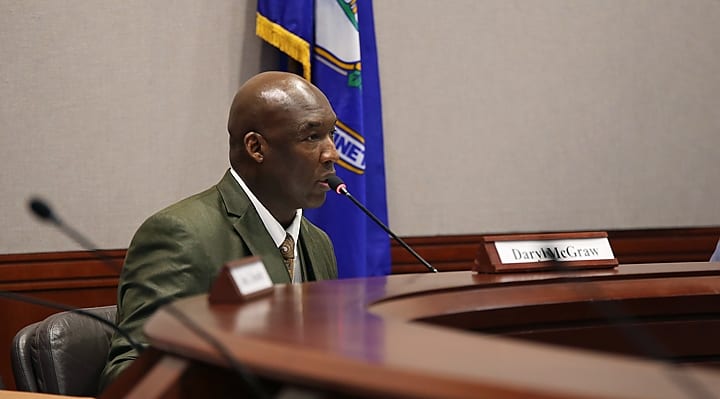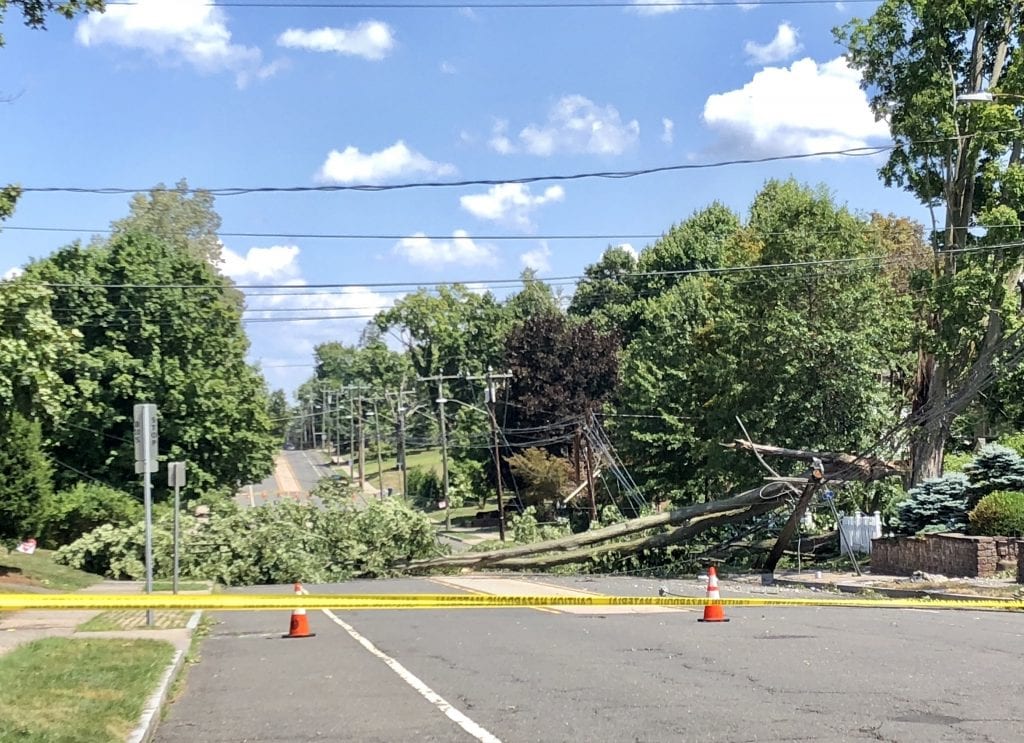New Connecticut Laws Starting Jan. 1

Audio By Carbonatix

Daryl McGraw, chair of the Police Accountability Task Force. Photo credit: Lisa Backus (CTNewsJunkie.com file photo)
Portions of the Police Accountability bill take effect Jan. 1, and energy companies will also be subject to new accountability mandates.
By Christine Stuart, CTNewsJunkie.com
With a legislative session cut short by the COVID-19 pandemic and two single-day special sessions, there’s not a lot of new laws to add to the books in the new year. But there are a few that are significant.
Starting on Jan. 1, 2021, under the Police Accountability bill passed in July, police officers will be required to submit to a behavioral health assessment at least every five years as a condition of continued employment. They will be required to display their badge and name tag on the outside of their uniforms, and police administrators will be required to report on efforts to recruit “minority police officers.”
On an annual basis, starting on Jan. 1, 2021, the law requires the Police Officer Standards and Training Council to include in its annual report information about “recruiting, retaining, and promoting minority police officers.” That report will also be submitted to the legislature’s Judiciary and Public Safety and Security Committees.
Also the 13-member Police Accountability Task Force is expected to submit its preliminary report to the legislature in January. Its final report isn’t due until Dec. 31, 2021.
The new law requires the chief state’s attorney, in consultation with the chief court administrator, to prepare a plan to have a prosecutorial official review each charge in any criminal case before the case is docketed. By Jan. 1, 2021, the chief state’s attorney must submit the plan to the Office of Policy and Management and the Judiciary Committee.
The one bill the legislature passed in March before the pandemic authorizes $3 million for police training and requires the Office of Policy and Management Secretary to report by Jan. 1 on the content of the law enforcement community engagement training in towns with a population exceeding 100,000 and adjacent towns.
Energy and Power Outages
One of the biggest news stories of the year was the increase in electric rates at the height of the pandemic right before Tropical Storm Isaias knocked power out to more than 800,000 residents for several days.
During the September special session lawmakers looked to the Public Utilities Regulatory Authority to change the rate-setting process to hold utility companies accountable for their response to the storms.
One of the 13 new laws passed in 2020 requires electric companies to report both to regulators and the legislature’s Energy & Technology Committee a report about how it prepares and responds to storms.
The report must, according to a summary of the legislation, include a cost-benefit analysis that identifies the resources spent responding to the last five storm events classified as level three, four, or five. The analysis is also supposed to include a review of the number of line crews, both those employed by the company and those hired as contractors and subcontractors.
The report is also expected to include information about planning for at-risk and vulnerable customers; communication policies with state and local officials and customers, and individual customer restoration estimates and their accuracy.

Farmington Avenue near Garfield was closed following Tropical Storm Isaias due to a large tree across the road that also brought down a slew of wires. Photo credit: Ronni Newton (we-ha.com file photo)
The law requires PURA to initiate a docket by Jan. 1, 2021, to review the reports and submit a final decision to the Energy & Technology Committee.
Department of Energy and Environmental Protection Commissioner Katie Dykes will also be expected by mid-January to report on the state’s reliance on wholesale energy markets administered by ISO-New England and their benefit to Connecticut ratepayers. Dykes is also expected to recommend alternative approaches to meet the state’s need for affordable electricity that also keeps with public policy on reducing greenhouse gas emissions.
Republished with permission from CTNewsJunkie.com, all rights reserved.
Like what you see here? Click here to subscribe to We-Ha’s newsletter so you’ll always be in the know about what’s happening in West Hartford! Click the blue button below to become a supporter of We-Ha.com and our efforts to continue producing quality journalism.



